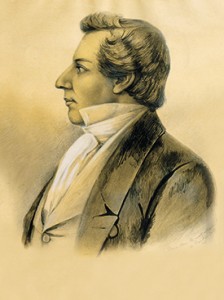
I know that it seems weird to identify “trends” on a document that has been out less than a year, so this post may seem a bit premature. At the same time, the fact is that two major schools have already developed regarding the Gospel of Judas. The first, following the initial release of the text, argued that Judas was the chosen disciple over all the others. The obvious shock-value of this revelation has propelled the popularity and interest in the text. The second, newer interpretation offered by Painchaud, DeConick, Emmel and Turner aims to out-shock the first in a set of new claims about what the “Gospel of Judas REALLY says.”
This new interpretation argues that Judas does not “surpass” the other apostles in greatness, but in wickedness! Basing itself on a different translation of this key Coptic phrase, these scholars argue that the initial readings of Gospel of Judas played too much into the hype. Judas is not a saint in this text, but the worst sinner of all of the disciples.
The problem is that this second reading makes no sense at all. For the record, the Coptic phrase in question can technically be translated both ways. However, if we follow the second interpretation, then the text becomes an extended vision of special cosmological knowledge given to Judas, only to find out that he understands even less than the other wicked apostles. In this reading, there are no heroes. No one is saved. One reads the text only to find out that no one can be trusted. No one. This reading strikes me as absurd for two reasons. First, this is afterall the Gospel of Judas, the title given to the text by the text. There is not a single parallel example of a “gospel” being attributed to the person who turns out to be the worst sinner in its story. For post-canonical Gospels, the disciple to whom the text is attributed is often the hero of the text. Second, it makes no sense that there are no heroes at all in the text. Why would anyone read this text? It has no solution for anyone to be saved since the rest of the disciples besides Judas are unambiguously ignorant.
This debate will continue to be played out, and will hopefully be dealt with in the upcoming Elaine Pagels and Karen King commentary (though how much time that had to respond to this new trend before their publication deadlines remains to be seen since it was really in October in Paris and November at the SBL that people started advocating this position). The easy path will be taken by those who choose to see Judas subversively for their own theological goals, and those who prefer to see Judas as the most wicked disciple for their own theological goals. No doubt the debate will continue to give scholars something to argue about, but to this reader, the second argument doesn’t have much interpretive weight.











